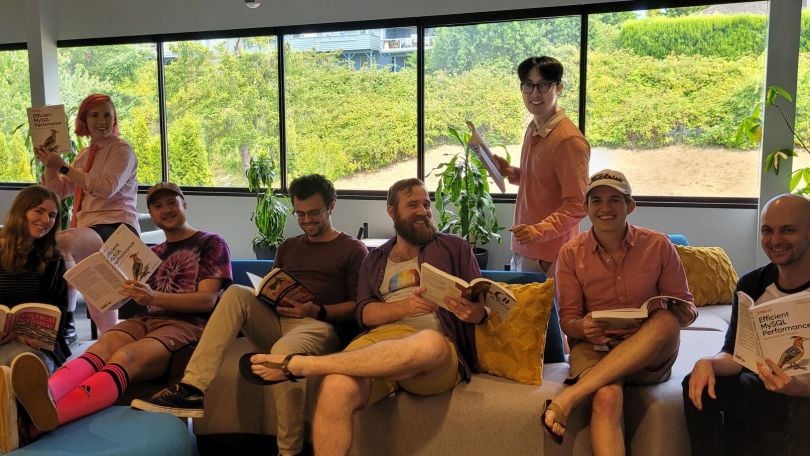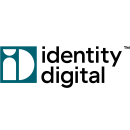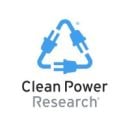As any seasoned scientist will tell you, discovering new things requires a certain amount of failure.
Some of the best inventions today started in failure. Take James Dyson, the creator of the famous vacuum, who tested out over 5,000 prototypes before finding one that worked. Penicillin was created by accident after Alexander Fleming found that moldy petri dishes were the key to preventing bacteria from growing. Even Walt Disney was fired from a newspaper job in his twenties because he “lacked creativity.”
Failure is an important part of experimentation, which leads to discovery. Making time to explore the ideas that spark curiosity are the core elements of being an engineer.
Just ask these two software engineers.
Built In spoke with two tech professionals who shared how they build in time to explore new ideas and experiment without fear of failure.
Identity Digital is an internet infrastructure company that makes sure web addresses work seamlessly. The company notes, “if we do our job right, we are invisible to the user.”
Give us a snapshot of what you do to stay on top of your engineering knowledge and skills.
I primarily use online videos and, occasionally, books to stay up to date in skills. To keep on top of trends, I subscribe to various YouTube channels and email mailing lists. I don’t have a specific schedule for knowledge and skill-building, but it’s often driven by external factors. For example, if there is something being introduced at work I will often find additional online resources to learn more, even on my own time. And if anything interesting pops up in my YouTube subscriptions or email mailing lists, I will delve more into that.
What are your go-to resources for keeping your engineering skills sharp?
YouTube has been my primary resource for keeping my skills up to date in recent years. In the past I’ve used learning platforms such as Udemy and Pluralsight. However, I found that most of these platforms focus on very long training courses, which I often do not have time to complete. With YouTube, I can quickly find what specific areas I want to focus on and learn quickly, with different perspectives and explanations from many different content creators. Even more recently, I’ve been leveraging AI tools, which have taken learning to the next level, as it lets me focus even more concisely on specific areas I am interested in.
“I’ve been leveraging AI tools, which have taken learning to the next level, as it lets me focus even more concisely on specific areas I am interested in.”
What does the learning culture look like at your company or on your engineering team?
Our company provides paid online training resources and high-quality tools for the team to use, such as JetBrains and AI tools, which has helped tremendously with both productivity and learning.

Clean Power Research is a B2B cloud software company that supports utilities, energy agencies and industry as they navigate the energy transition toward renewables and a modernized grid.
Give us a snapshot of what you do to stay on top of your engineering knowledge and skills.
I don’t spend too much time tracking new trends in tech or focusing on knowledge- and skill-building. Instead, I prefer hands-on learning through real-world projects. I find that the variety of projects I work on both inside and outside of work gives me a broad exposure to different tools and technologies.
I learn best through experimentation, by applying any new knowledge or experiences to problems. Because of our small team sizes at Clean Power Research, I have the chance to work on the entire product. This gives me hands-on experience with a wide variety of systems, from back-end cloud infrastructure to front-end user interfaces. The opportunity to work across various areas of the product helps me continually grow and refine my engineering knowledge in a practical, meaningful way.
“I learn best through experimentation, by applying any new knowledge or experiences to problems.”
What are your go-to resources for keeping your engineering skills sharp?
My go-to resources for keeping my engineering skills sharp are reading documentation and studying source code. Source code and implementation examples in particular are invaluable for learning new technologies and understanding best practices.
Outside of work, I take advantage of Clean Power Research’s education assistance program to continue my education through the University of Washington’s professional master’s program. This program helps me build a strong theoretical foundation and provides me with another opportunity to experiment with different techniques and technologies.
What does the learning culture look like at your company or on your engineering team?
At Clean Power Research, we have a culture of continuous learning and improvement. As an engineering-driven company focused on SaaS products, we have to continually improve and evolve to meet our customers’ needs. Engineers are encouraged to take time to learn and explore new concepts and technologies, and we have a variety of different ways to support learning. For example, we regularly set aside time to explore new concepts and technologies; most recently, we spent a week tinkering with different ways to integrate LLMs into our product.
We also hold weekly developer meetings to discuss any obstacles we’re facing, share solutions, and learn from one another. We have an environment that promotes continuous learning, where team members are encouraged to support each other’s growth and continually develop their expertise.









